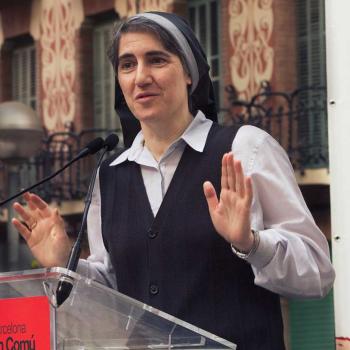Hijacked: Responding to the Partisan Church Divide
By Mike Slaughter and Charles E. Gutenson, with Robert P. Jones
It is a time of sharp division and inflexible opinion in America. Those who know they are right are arrayed against those they are certain are wrong, and the opportunity for dialogue seems to have slipped away somewhere during the last decade. Whether we describe the battle as being between Red States and Blue States, liberals and conservatives, religious and secular, or true theology and false theology, true believers on either side are convinced that they are engaged in a battle for America's soul. While Christians ought to be on the forefront of conversation and reconciliation, you don't have to look any further than today's newspaper to know that religion is also polarizing us, especially at the intersection of religious faith and political issues. As Mike Slaughter points out in one of his sections of the new book Hijacked, when congregants begin to associate certain political stances with Christianity, they may believe that their pastor isn't preaching the gospel. Like fellow mega-church pastor Gregory Boyd, the Rev. Slaughter lost members from his fellowship for paying attention to justice, not simply preaching a partisan religion (15-17).
Hijacked asks the hard question, What has happened to the Evangelical Church? Why are we as divided as our secular culture? The Rev. Slaughter observes that 1984 is when he noticed that evangelical Christianity began to combine with conservative politics (26-27). It was then, he observed, that evangelicals began to get seduced by the prospect of power. "Evangelicals," he notes, "were becoming less prophetic and were being drawn into the allure of the possibility of world change through grassroots organizations that would lead to political control and dominance." The problem, as Hijacked explains it: Legislation can't change the human heart.
And power corrupts (28).
So the problem for mainstream American Christianity has become a simple one: it has gotten itself so tied into the structures of power that it can hardly disentangle itself in its present form. Orthodoxy in political beliefs has become in some churches as important as orthodoxy in religious belief. And here is where Hijacked makes a huge contribution toward civility and the possibility of Christian renewal. It reminds us of the old saying, sometimes attributed to John Wesley, taken as the organizing principle of the Moravian Church, that it is not necessary that all of us agree on everything: "In essentials unity; in non-essentials, liberty; and in all things, charity."
Phyllis Tickle likes to tell audiences that the IRS counts over 20,000 different Protestant denominations in the United States. Each of these formed over disagreements in theology, worship, or polity: Methodists, Episcopalians, African Methodist Episcopalians, Southern Baptists, Free Will Baptists, American Baptists—you get my point. Some of the differences between these denominations are over essential matters, although not many. Unitarians do not believe the same as Southern Baptists about the divinity of Christ; the Church of Latter-day Saints counts the Book of Mormon as a new holy scripture, while the Assemblies of God would tell you that the Holy Bible contains in itself and without error all that God wishes us to know.
But the political issues dividing the nation—and the nation's Christians—are all, in the language of the phrase we hear in Hijacked, inessential. Chuck Gutenson boils down the historic creeds to suggest nine elements that might represent the essentials of Christian faith, although not all of them are accepted by all Christians. But his point—and mine: political ideology and political commitments, even those arrived at by interrogating one's faith, are not essentials of the faith (40-42).
Christians can—and do—disagree on abortion policies, on birth control, on the death penalty. To make one or more of these issues a litmus test for true Christian belief, Hijacked argues, is to do damage to the Body of Christ, and to ignore the commandment Christ left us to love each other. It also simplifies human beings and their beliefs too radically. A person can be theologically conservative, socially liberal, fiscally moderate, or any variation of these things. Nothing in the Bible suggests an absolute position on most of today's political issues (44-45). And in any case, Prof. Gutenson notes that
Jesus said Christians would be known, not by their ability to draw lines between themselves and those with whom they disagree, not by their ability to hold only true opinions on all matters, but rather by their love for one another quite apart from whether or not they agree on all the issues. . . . We are to love one another in spite of our divergent opinions—a love that bridges the ideological differences and allows us to join hands with one another and with God in his great work of reconciling the world to himself (50).





